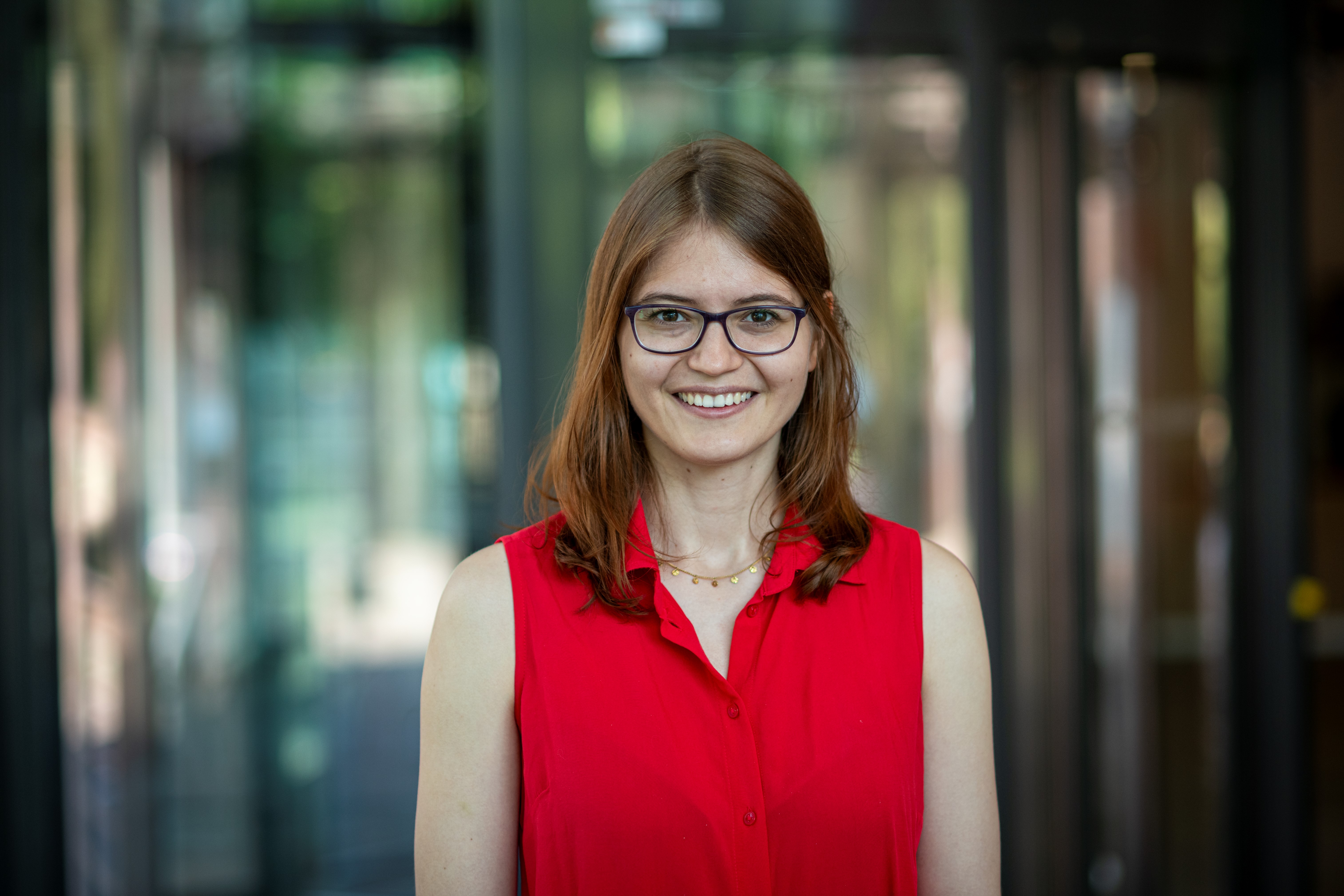Vanessa Srebny

Address:
Permoserstr. 15
04318 Leipzig
Building: 6.0
Room: 332
Phone: +49 341 6025 1741
Vanessa Srebny
Vanessa Srebny has been working as a research scientist in the Department of Cell Toxicology since May 2023. She initiated her academic journey with a bachelor's degree in Biochemistry at the University of Heidelberg from 2014 to 2017 and continued her studies within the Biotechnology Master's program at Lund University in Sweden. In her Master's thesis, she focused on the enzymatic synthesis of raw materials for biodegradable plastics.
Her passion for interdisciplinary research and her commitment to creating impactful innovations led her to an industrial internship at the Nestlé Institute of Packaging in Lausanne, Switzerland. There, she played a pivotal role in the exploration of enzymatic recycling methods for composite packaging materials, particularly polyurethane-based adhesives, resulting in her contribution to the development of three patents in this field.
Vanessa Srebny further honed her knowledge and skills through an internship in the field of science communication at the NGO Food Packaging Forum Foundation in Zurich, Switzerland. During this period, she gained valuable insights into the interface between research, regulation, and industry, recognizing the high relevance of narratives for effectively communicating complex issues.
Her current research as part of her doctoral program is centered around the development and implementation of two new hazard indicators for chemical assessment: Cumulative Toxicity Equivalents (CTE) and Persistence Toxicity Equivalents (PTE). These indicators have the potential to enhance the existing assessment procedures for persistence, bioaccumulation, and toxicity (PBT), which are integral to the European chemical regulation, REACH. Her research project involves a case study comparing the toxicity of Bisphenol A with 26 alternatives, representing an ambitious undertaking within Workpackage 5.1.2 as part of the Partnership for the Assessment of Risks from Chemicals (PARC) initiative.
In addition, she actively participates in a project with the Helmholtz Platform SynCom, which facilitates interdisciplinary dialogue between industry, regulatory authorities, non-governmental organizations, and research through the organization of workshops. This dialogue is expected to provide valuable input and diverse perspectives to advance innovative solutions in the field of chemical risk assessment.
Her passion for interdisciplinary research and her commitment to creating impactful innovations led her to an industrial internship at the Nestlé Institute of Packaging in Lausanne, Switzerland. There, she played a pivotal role in the exploration of enzymatic recycling methods for composite packaging materials, particularly polyurethane-based adhesives, resulting in her contribution to the development of three patents in this field.
Vanessa Srebny further honed her knowledge and skills through an internship in the field of science communication at the NGO Food Packaging Forum Foundation in Zurich, Switzerland. During this period, she gained valuable insights into the interface between research, regulation, and industry, recognizing the high relevance of narratives for effectively communicating complex issues.
Her current research as part of her doctoral program is centered around the development and implementation of two new hazard indicators for chemical assessment: Cumulative Toxicity Equivalents (CTE) and Persistence Toxicity Equivalents (PTE). These indicators have the potential to enhance the existing assessment procedures for persistence, bioaccumulation, and toxicity (PBT), which are integral to the European chemical regulation, REACH. Her research project involves a case study comparing the toxicity of Bisphenol A with 26 alternatives, representing an ambitious undertaking within Workpackage 5.1.2 as part of the Partnership for the Assessment of Risks from Chemicals (PARC) initiative.
In addition, she actively participates in a project with the Helmholtz Platform SynCom, which facilitates interdisciplinary dialogue between industry, regulatory authorities, non-governmental organizations, and research through the organization of workshops. This dialogue is expected to provide valuable input and diverse perspectives to advance innovative solutions in the field of chemical risk assessment.
